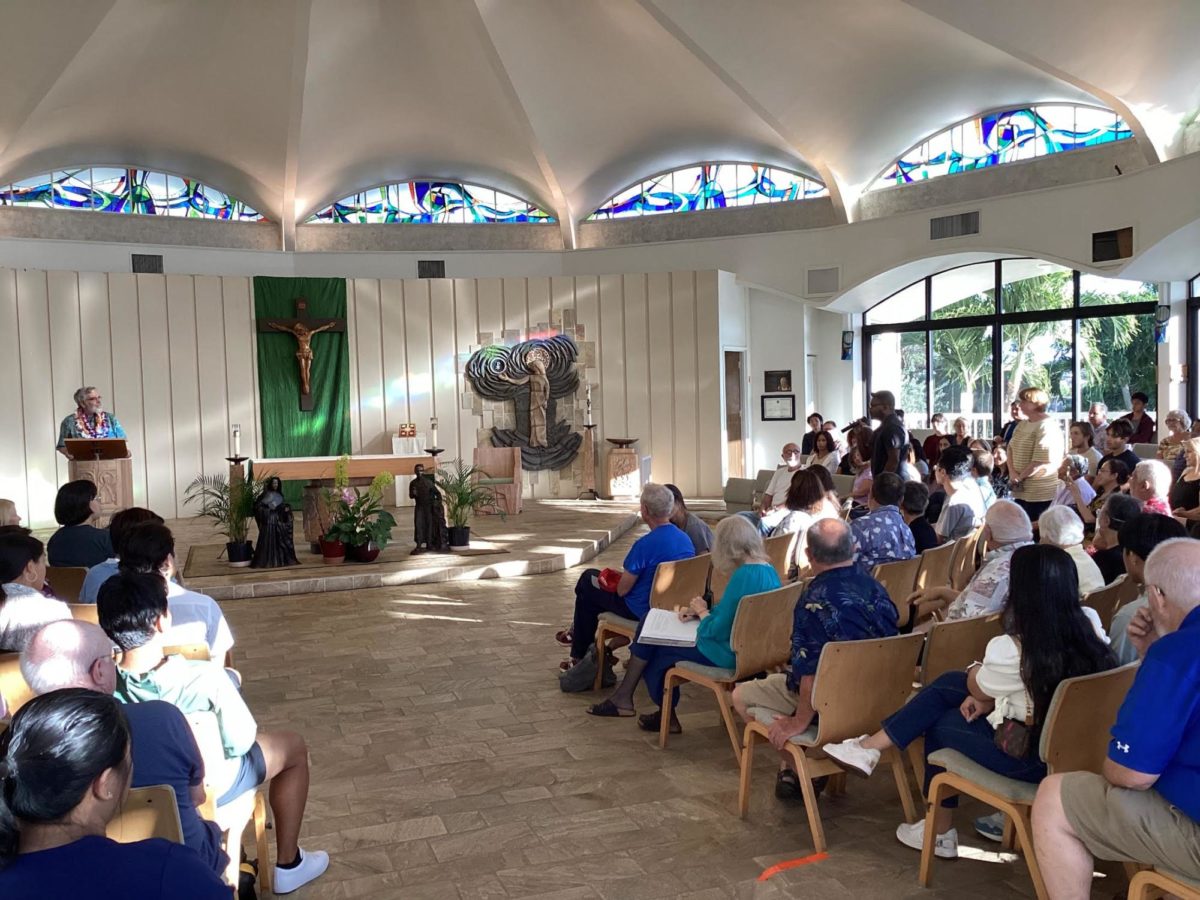For thousands of years, non-believers of Christianity had a debate about whether science or religion should be the dominant train of thought in understanding the world. A majority of the public says science and religion often conflict, with nearly six in 10 adults (59%), according to a study done by Pew Research Center in 2015.
Brother Guy J. Consolmagno, the director of the Vatican Observatory said that both can coexist, even for the most technical of people. On Sunday afternoon, Brother Guy spoke on “God’s Mechanics: How Scientists and Engineers Make Sense of Religion” at an almost full-capacity Mystical Rose Oratory.
His presentation centered on how “techies,” or those who are more technology-minded, are able to fathom and connect the idea of God, and some reasons why those “techies” might be unable to connect the dots between the logical mind and the religious mind.
Consolmagno said the idea that many “techies” know that proof of God is intangible, so the question that they most often seek to answer is “Why?” Why would there be a need to find God if there is no physical evidence like there is in science?
“I really liked how in the introduction video, Brother Guy said, ‘It’s [studying science] an act of getting closer to the creator,’” said Maureen Nelly Mañosca, a third-year student from Waianae studying Environmental and Interior Design.” I’m still questioning it after his talk, and I will take it home with me and think about it more.”
In his one-hour lecture, Consolmagno said that when non-religious engineers and scientists do want to learn more about God, they have a hard time choosing a religion because there are so many options. In science, there is often one truth, one solid answer. But when these people of science are trying to commit to a religion, it becomes up to them to discover which religion holds truth and meaning to an individual.
“Different religions are like different computer operating systems that work on different platforms,” Consolmagno said. “In other words, the church of religion you belong to depends on your personal history, your internal needs, your genetics, you know, how you’re wired.”
Regardless, out of all his conversations with his “techies,” Consolmagno noticed one commonality, in those religious and irreligious, that many “techies” abandon organized religion in their college years, but they never abandon their search for God, and searching for meaning in their lives.
“Science and religion are only in conflict if you think of both of them as a closed set of rules,” Consolmagno said. “But in order to encounter the universe, you have to have another dimension. More than, ‘what are the best odds?’ Where do we find love? The only certainty in life is God’s love, God’s mercy, and the fact that we need it. If your self-worth comes from thinking you’re the smartest person in the room, then you can never learn from the rest of the crowd.”
This quote spoke to Kathryn Sallaway, a third-year Forensic Science major from Washington state.
“As someone who studies a science major and someone who’s not religious, it’s hard for me to connect how to worship,” Sallaway said. “I like science, things I can see physical results from. But I hope that religion fills that other gap of knowledge that science can’t explain.”
At the end of the presentation, Consolmagno was presented with the Mackey Award for Catholic Thought, given to a speaker per year. This award is given to those who help continue the Marianist charism and make a difference in the community.
This lecture was put on by the Marianist Center of Hawaiʻi, Saint Louis School, and Chaminade University of Honolulu as part of their Marianist Lecture Series. The series started in September 2021 and has previously hosted Cardinal McElroy and Father James Heft.
The next speaker will be Dr. Steve Neiheisel on Feb. 18.
